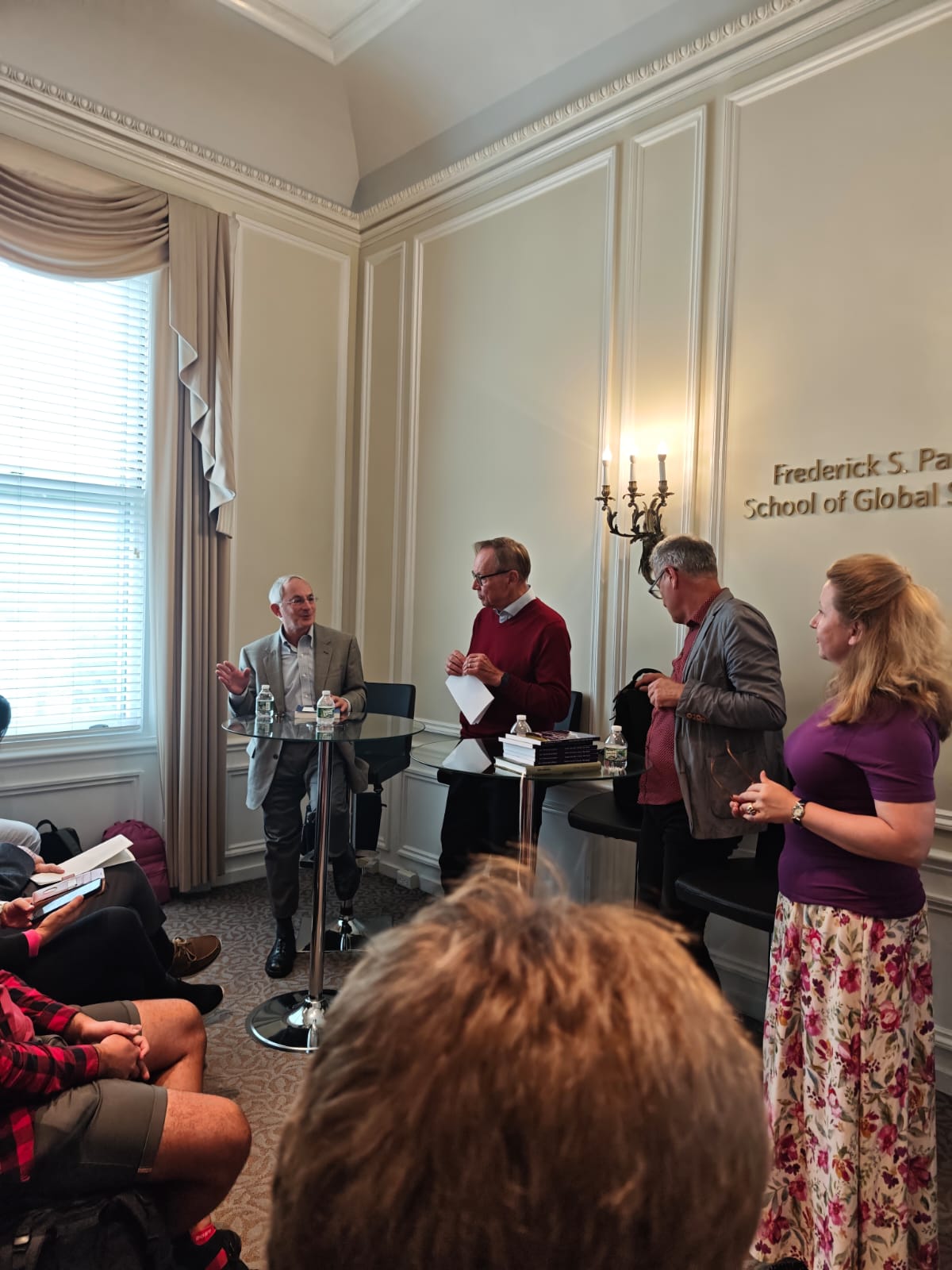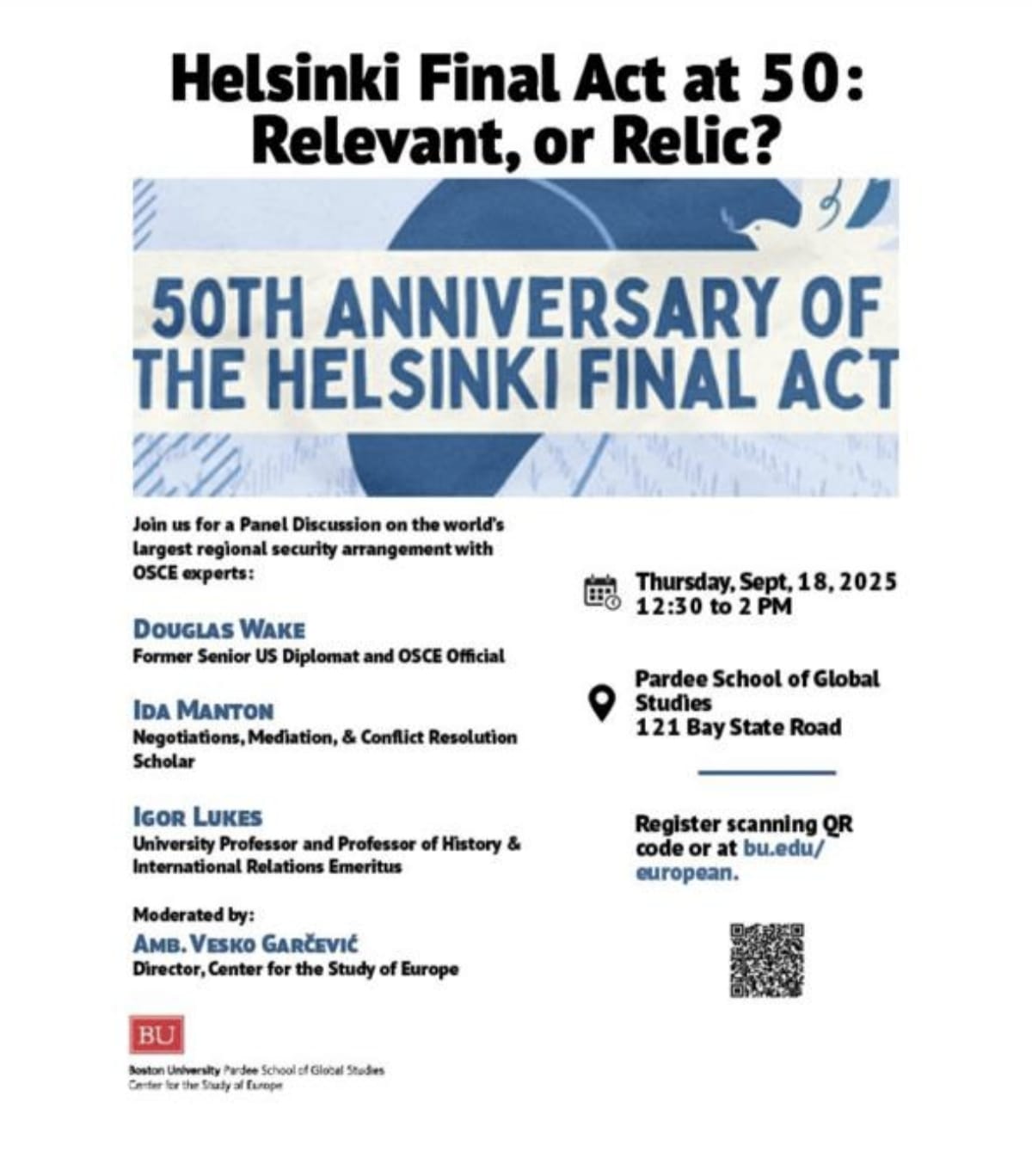50th Anniversary of The Helsinki Final Act: Relevant or Relic?


During a recent panel discussion, one of the speakers opened with a personal anecdote about listening to Radio Liberty in Leningrad in 1989 as the Vienna Concluding Document was being prepared. From there, the conversation turned to the broader significance of the Helsinki Final Act and the evolution of the Organization for Security and Co‑operation in Europe (OSCE). The panel emphasised that the 1975 Helsinki Final Act was not a legally binding treaty but a set of political commitments, including principles of sovereign equality, non‑intervention, peaceful dispute resolution and respect for human rights1. These principles laid the groundwork for later documents; the 1990 Charter of Paris for a New Europe explicitly declared that democracy and human rights must become the foundation of relations among participating states and that democracy is the only legitimate system of government2. Taken together, these agreements created a moral and political framework that participating governments could use to hold each other accountable.
Speakers also examined the role of the United States. Initially, U.S. policy makers such as Henry Kissinger were sceptical of the Helsinki process. Nonetheless, after the Final Act was signed, Congress created the Helsinki Commission—comprising members of the House of Representatives, the Senate and representatives of the executive branch—to monitor compliance with Helsinki commitments and champion human rights in U.S. foreign policy3. Today, the Commission remains active and often leads U.S. delegations to OSCE meetings and election observation missions. OSCE membership has expanded to 57 states; it maintains headquarters in Vienna and institutions such as the Office for Democratic Institutions and Human Rights (ODIHR) in Warsaw and the High Commissioner on National Minorities in The Hague4.